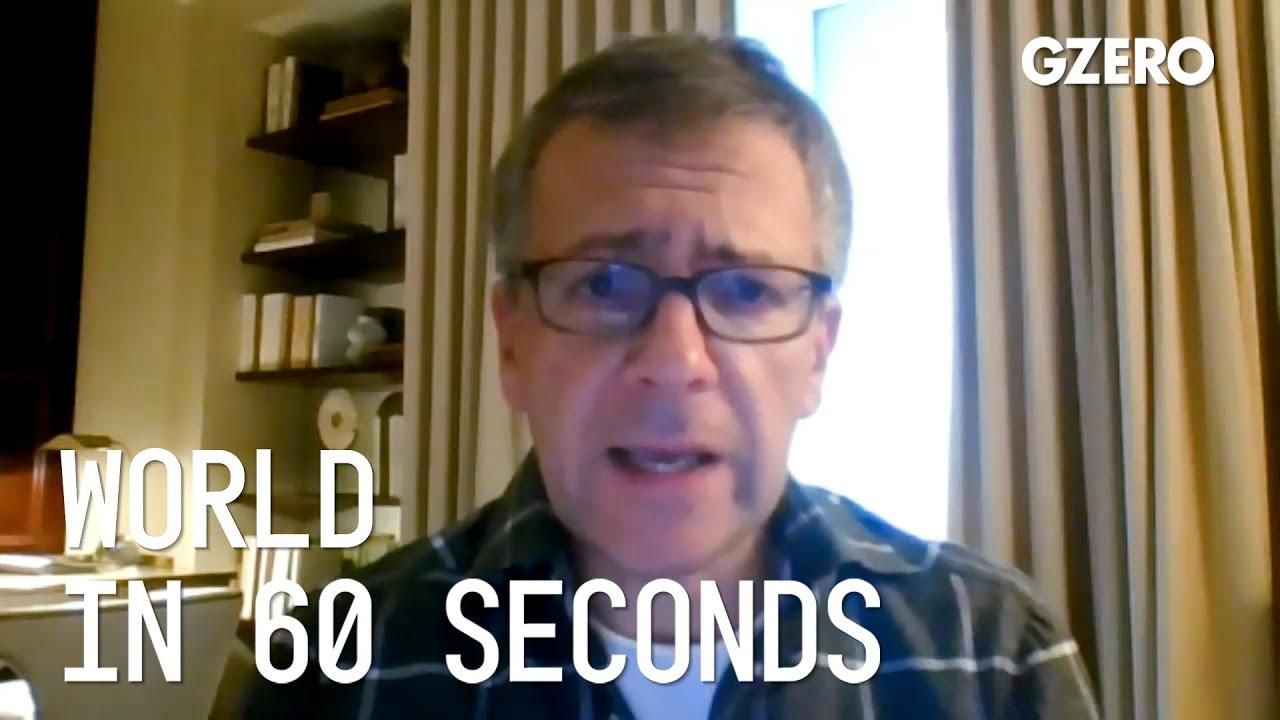
Ian Bremmer shares his insights on global politics this week on World In :60.
What's your reaction to Biden's State of the Union address?
Well, I mean, a couple things. First of all, even longer than last year's. He has the longest State of the Unions of any president in memory. And he is getting old. He's 80 years old. The first half of the speech, he came across as very strong, pretty compelling. Second half of the speech, he was obviously getting tired. He was having difficulty with some of the sentences. That doesn't show incredibly well. More importantly, has a lot of domestic wins that he's focusing on. This feels like a kickoff to a campaign speech. I fully expect him to announce his run for the presidency formally in the next couple of months, and I think pretty much everyone on the Democrats side does as well.
Very little on foreign policy. The balloon was not mentioned directly. That's good. As I said, I don't think we're going to be talking about that in a few days time, only sort of indirectly. Much more competition with China. No new policy announced on Russia and Ukraine, but in part that's because they've got the money they need for now, and by the time you have to look for more in September, no one's going to remember this speech. And nothing really on the Middle East, nothing really on climate. This was really a campaign speech. This was a domestic speech, and that is absolutely the focus. More protectionism/industrial policy from the United States than you've seen in a long time. That's pretty much where I am. And yes, there was a lot of sort of divisiveness from the Republicans, a lot of booing, and Biden got into a back and forth, and I'm sure you'll see all that on cable news. You don't need it from me. Okay.
Will the earthquake lead to significant downturn in the Turkish economy?
Fortunately, not so much. A horrible loss of life. These are big urban areas that are being hit and they're being completely destroyed, but they're relatively underdeveloped, both in the case of Turkey and in Syria where there's a lot of loss of life, too. Very small part of the Turkish economy, won't have a lot of impact. Will help Erdogan bring foreign policy together. More support from the United States, from the Europeans, from the Greeks, his traditional adversary, and even from the Nordics. That's really important, not only in the run-up for his election in May, but also because after the elections you've got Finland and Sweden that want to join NATO, and he has been basically putting roadblocks there. I think it's pretty clear that they're going to have a smoother way in after Erdogan's election.
How did Zelensky's surprise visit to the United Kingdom go?
It went pretty well. Keep in mind his big relationship is with Boris Johnson, who still has a shot of coming back in the UK. He's much more credible than Liz Truss certainly is, who's kind of re-throwing her hat in the ring. So, it was good for him to see Rishi Sunak, good for him to build that relationship personally. Also, keep in mind that after the United States, the United Kingdom is by far the second most important military supporter of Ukraine's ability to defend and retake its territory.
In that regard, not at all a surprise that the first trip outside Ukraine was to the United States, the second trip to the UK. He is focused absolutely first and foremost on can he continue to defend his country. Remember, after those tanks were provided, he's like, "Thanks to the tanks, how about some planes now?" In the United States that plays as you can never satisfy this guy. In Ukraine, that is he understands that the West is going to lose interest over time and he is absolutely aware of that and desperate to ensure he has as much support as humanly possible to get his territory back now while he can.
- Biden: We must ‘finish the job’ of repairing US economy ›
- Tragedy upon tragedy in war-torn Syria ›
- Turkey's Erdoğan finds political opening in quake aftermath ... ›
- Rishi Sunak vs UK economic crisis ›
- Zelensky charms Washington. But will it be enough for the long haul? ›
- Biden shifting to center ahead of 2024 re-election bid - GZERO Media ›